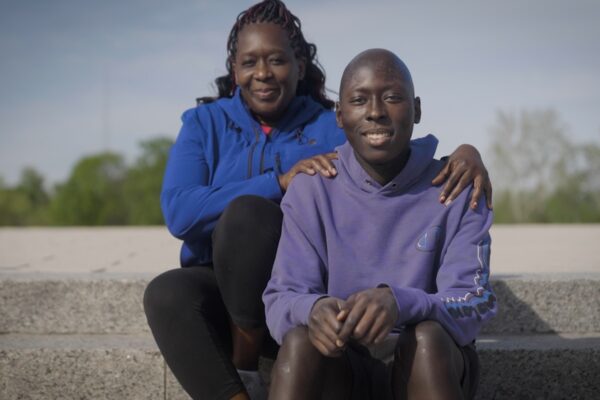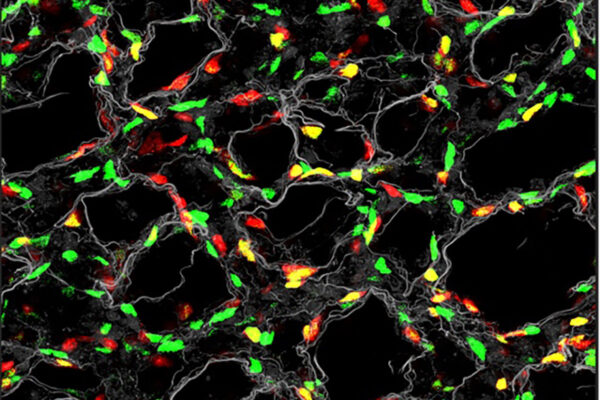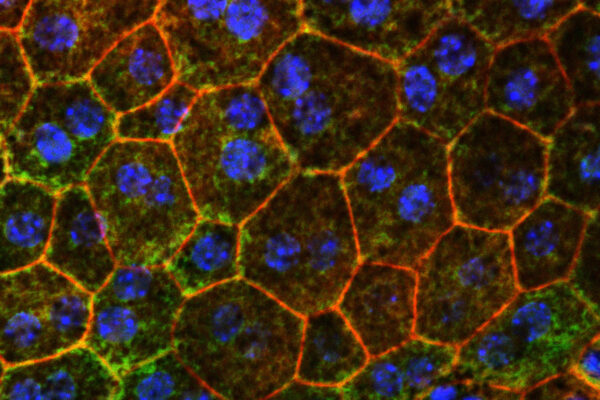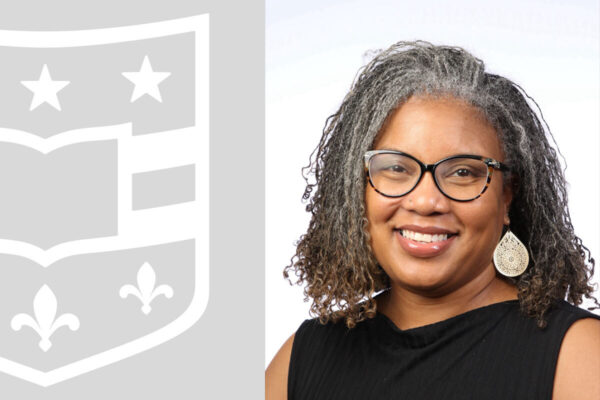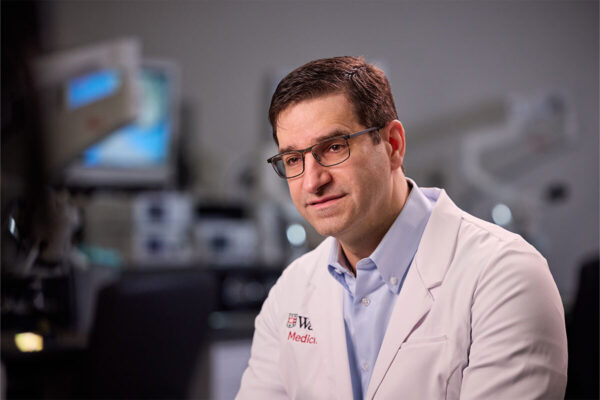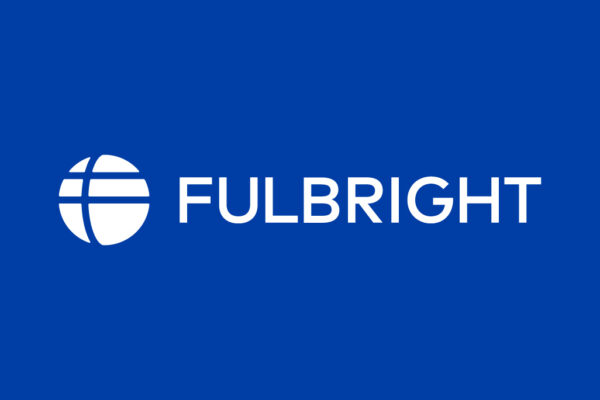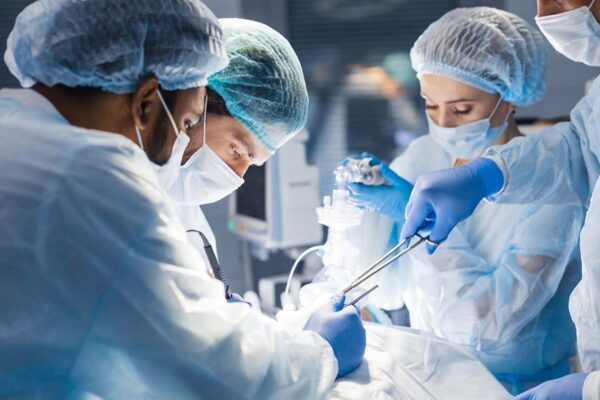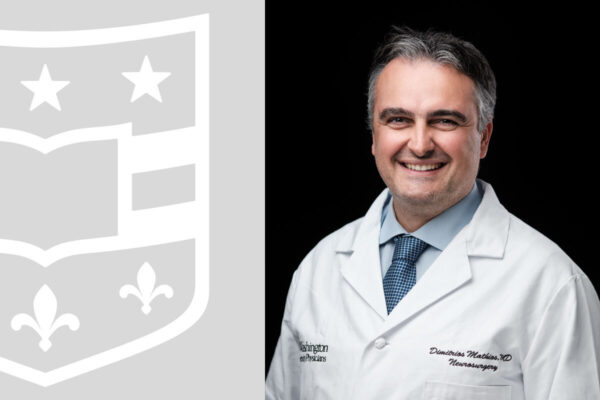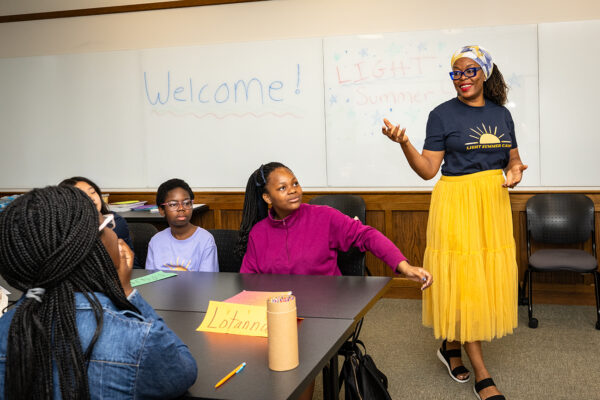Region’s first patient receives sickle cell gene therapy
The first sickle cell disease patient in the St. Louis region has been successfully treated by WashU Medicine physicians at St. Louis Children’s Hospital with a gene therapy newly approved by the Food and Drug Administration.
Ornitz receives NIH grant to study lung development
The National Institutes of Health (NIH) has awarded David M. Ornitz, MD, PhD, of WashU Medicine, $740,000 annually for four years to support research aimed at understanding respiratory complications associated with premature birth.
Strategy to prevent age-related macular degeneration identified
Fixing problems with cholesterol metabolism might help slow or prevent age-related macular degeneration, a leading cause of blindness in older adults, a new WashU Medicine study in mice has shown.
Harris selected for William T. Grant Scholar Class of 2030
Occupational therapy faculty member Kelly Harris, at WashU Medicine, will receive a $425,000 award to develop and test a technology-enabled care coordination service model to support Black youth with asthma.
AI-based brain-mapping software receives FDA market authorization
The FDA has given market authorization to a WashU startup’s technology that quickly and accurately maps the sensitive areas in patients’ brains to help neurosurgeons plan safe and effective surgeries.
Several alumni earn Fulbright awards
Eight recent alumni and one current student of Washington University in St. Louis earned Fulbright awards to travel abroad to teach English or to conduct research in the 2025-26 academic year. The program recognizes talented leaders and scholars who are committed to promoting global collaboration and understanding.
Predicting pain with machine learning
Researchers at Washington University in St. Louis are using machine learning to better predict who will experience persistent pain after surgery.
Machine learning can improve detection of brain cancer from blood
WashU Medicine neurosurgeon Dimitrios Mathios, MD, has developed a liquid biopsy that is aided by machine-learning tools to improve the detection of brain cancers.
WashU summer camp merges art, public health education
The LIGHT Creativity in Public Health Summer Camp at WashU encourages students to tap into their imaginations and lived experiences to create artwork, poetry and stories that communicate the importance of health and science.
More young women are getting breast cancer — why?
WashU Medicine’s Adetunji Toriola explains some of the factors driving the increase in women’s breast cancer diagnoses among women under 50.
View More Stories
